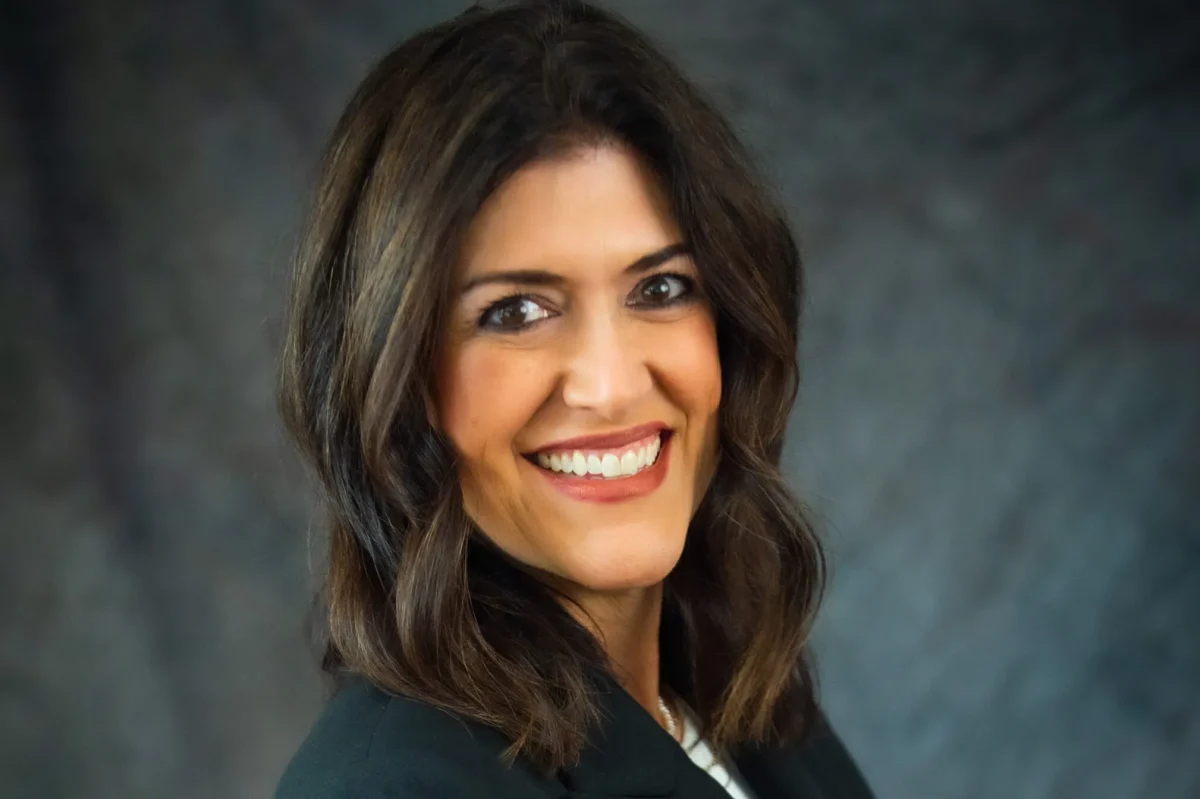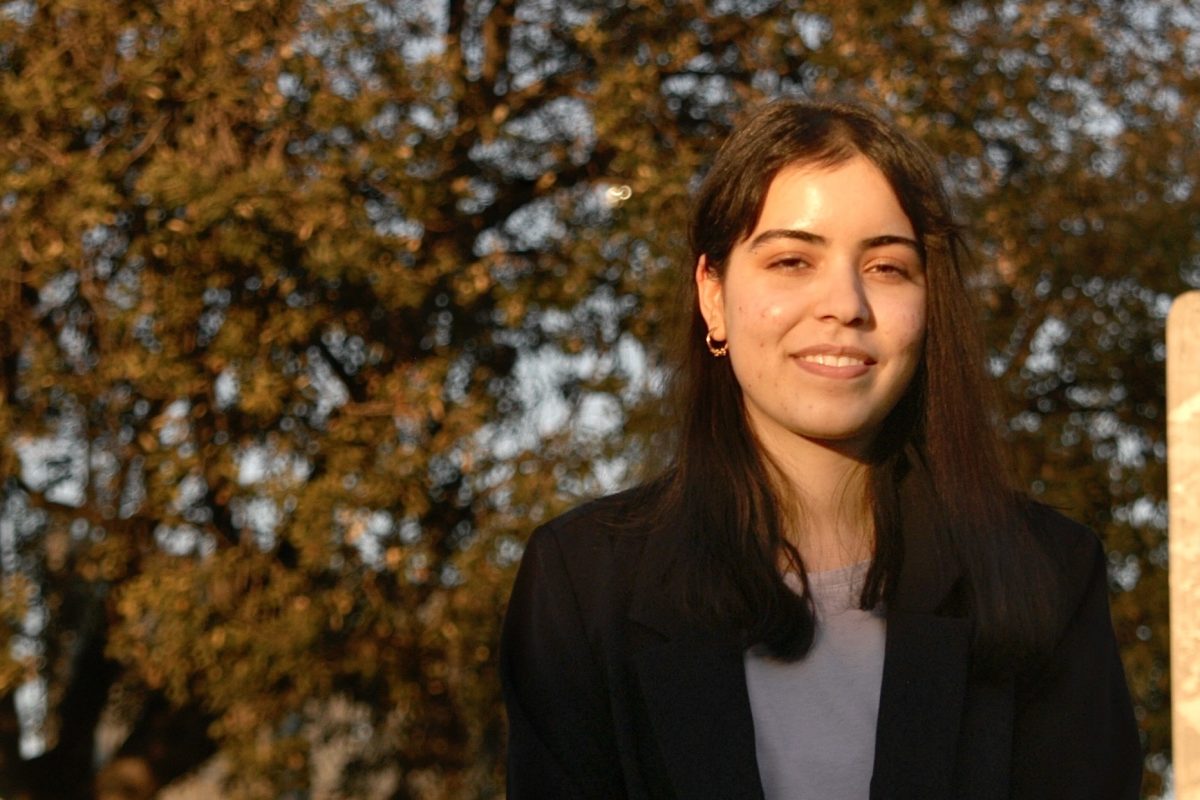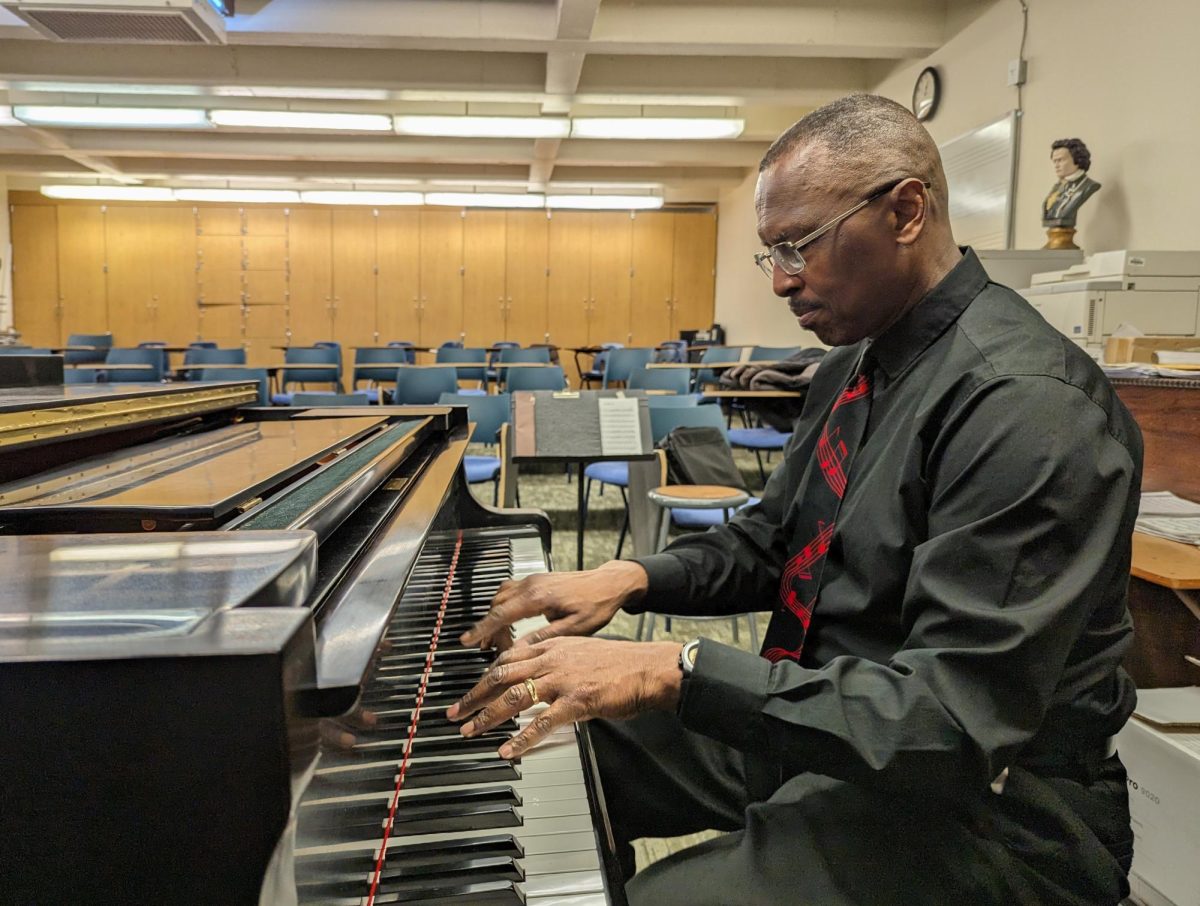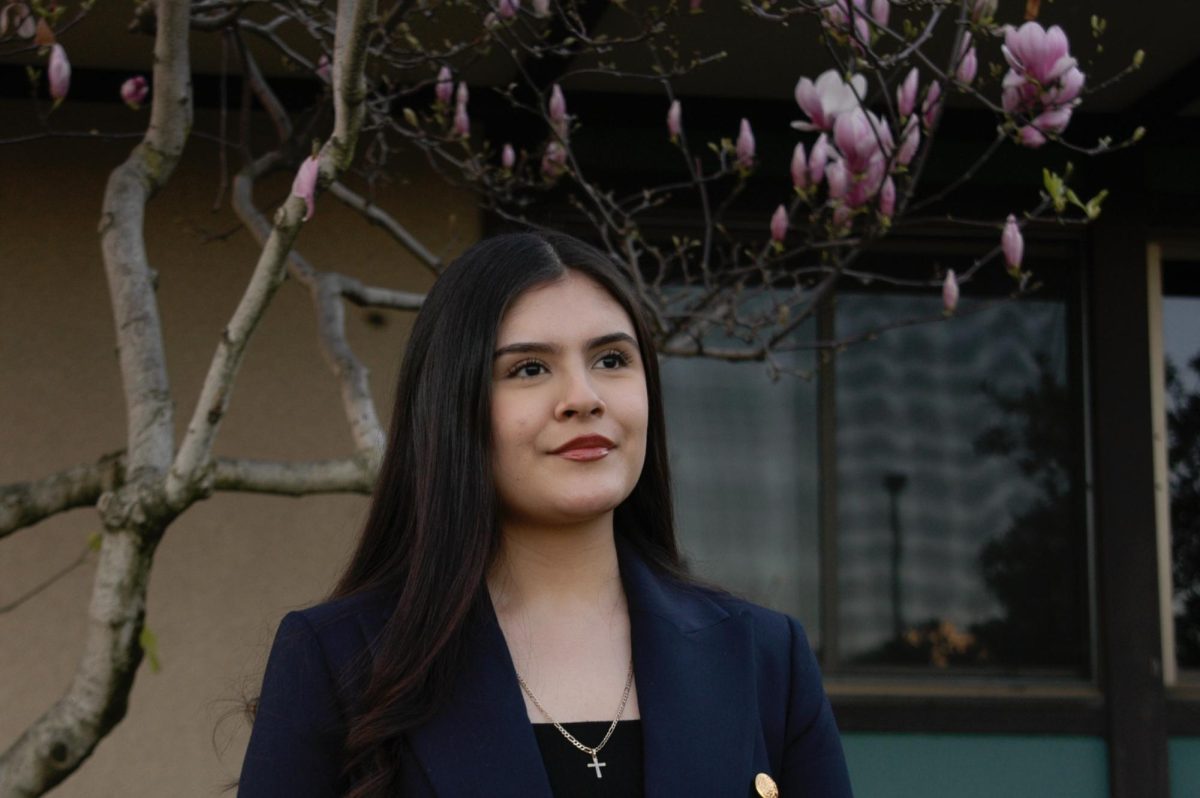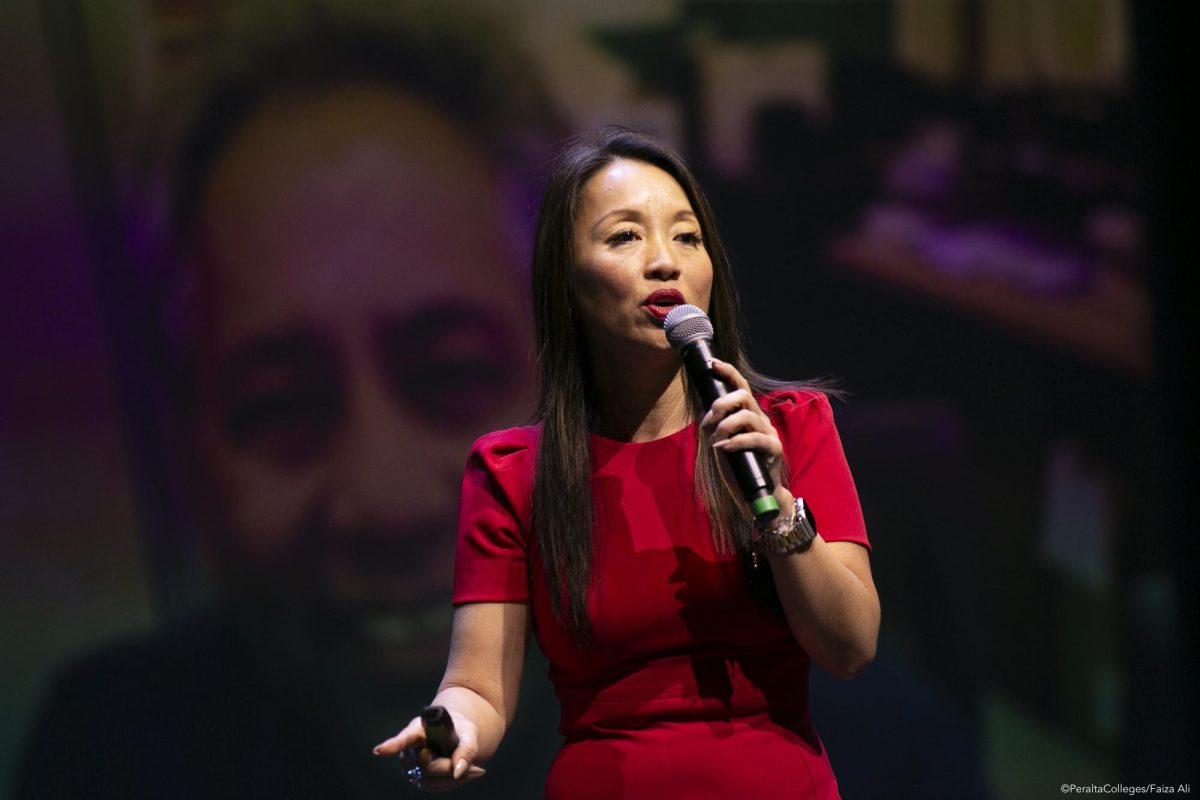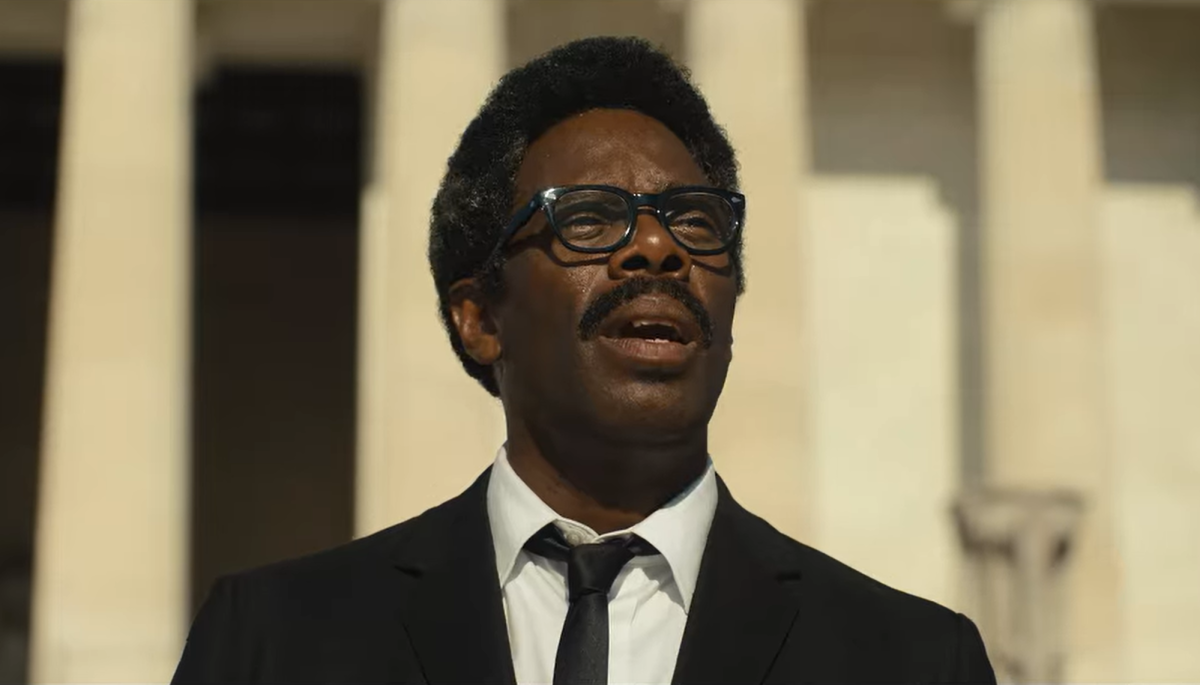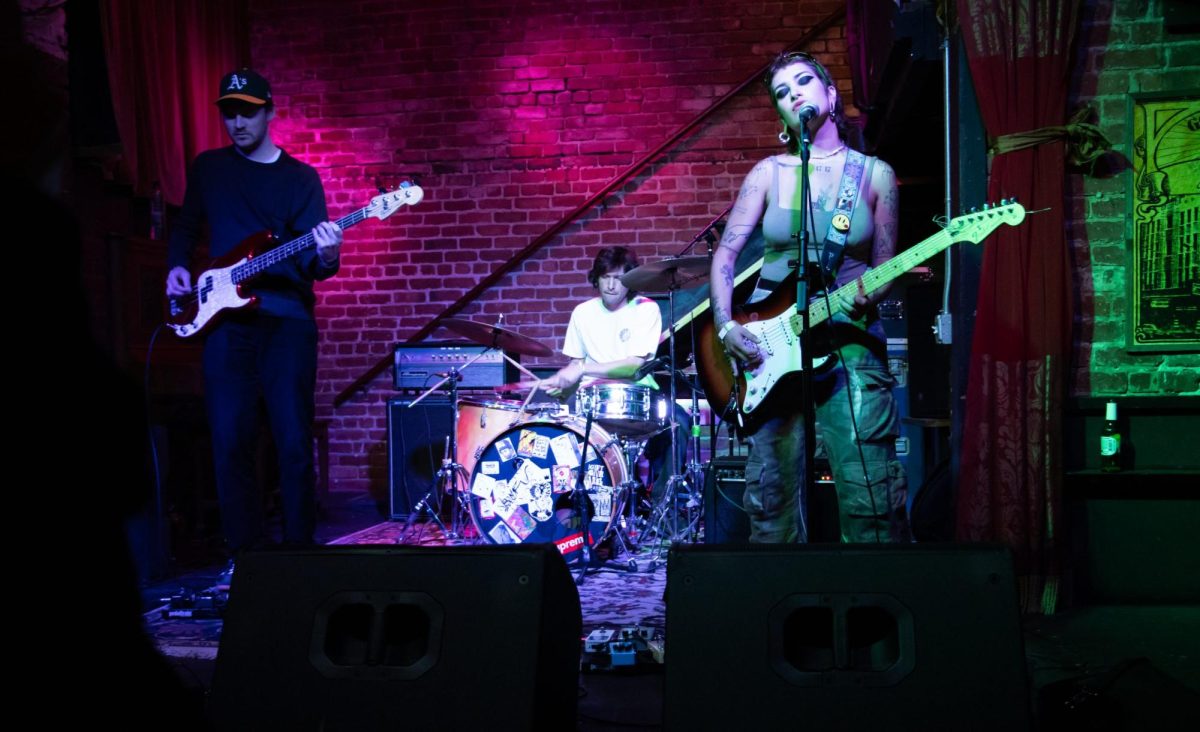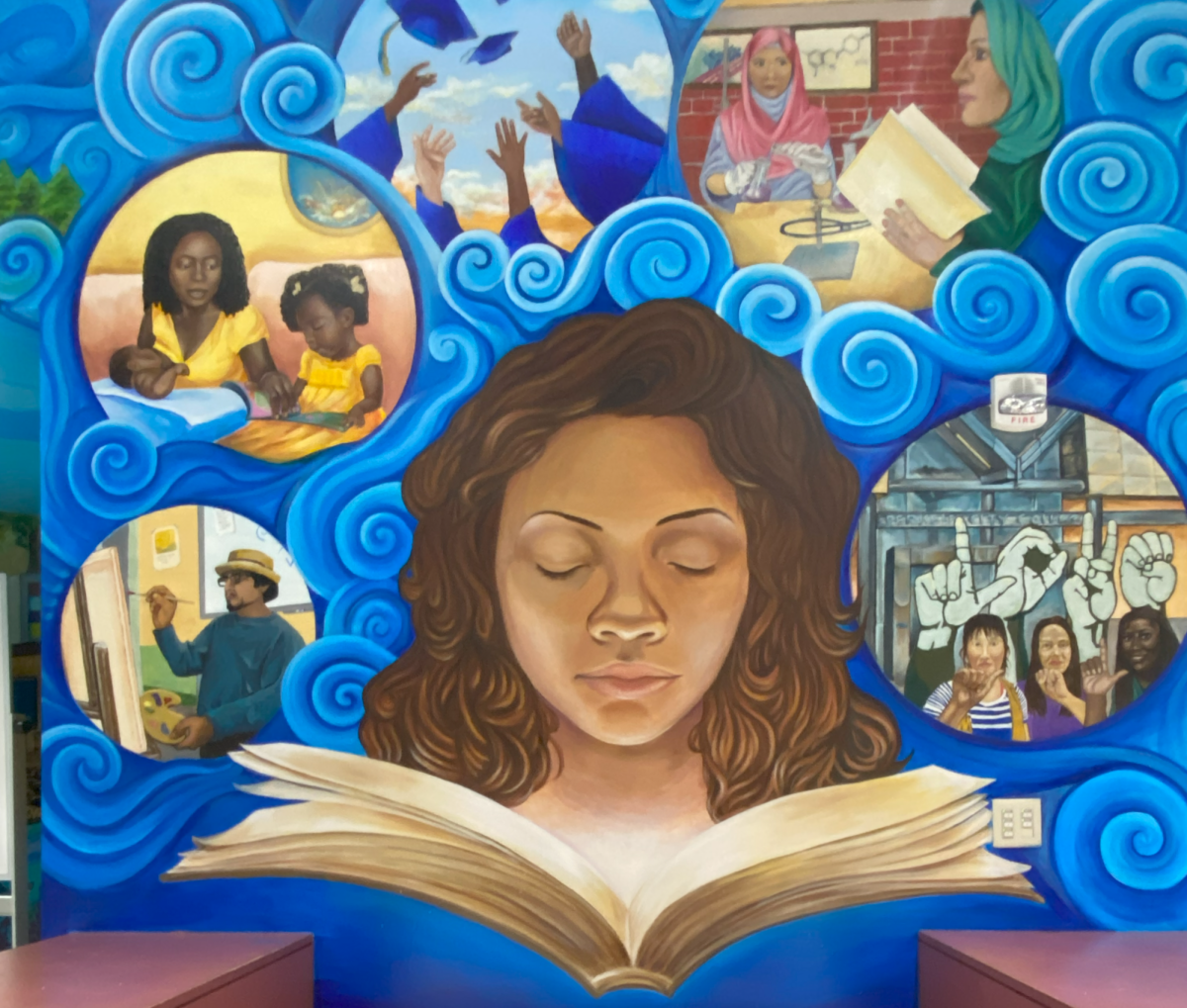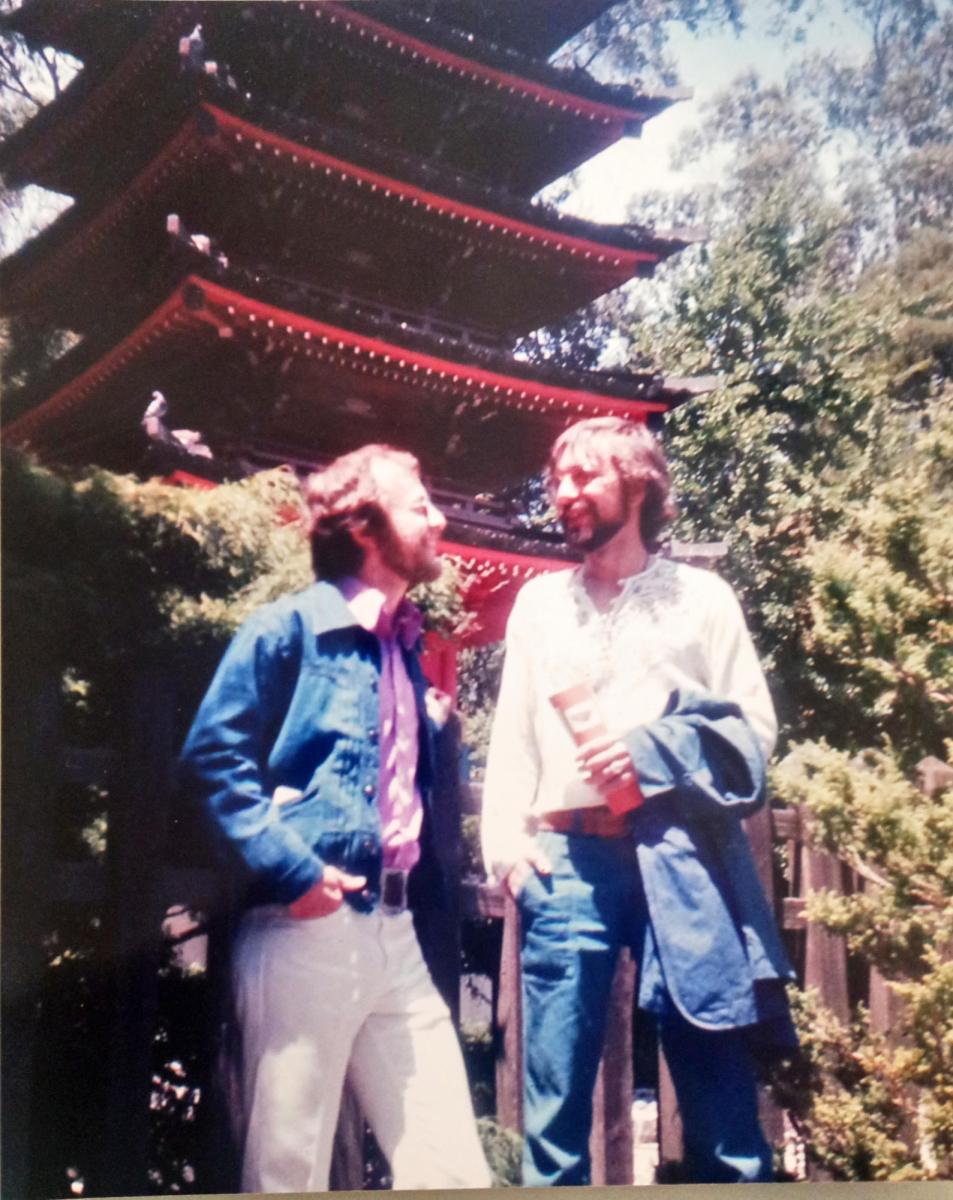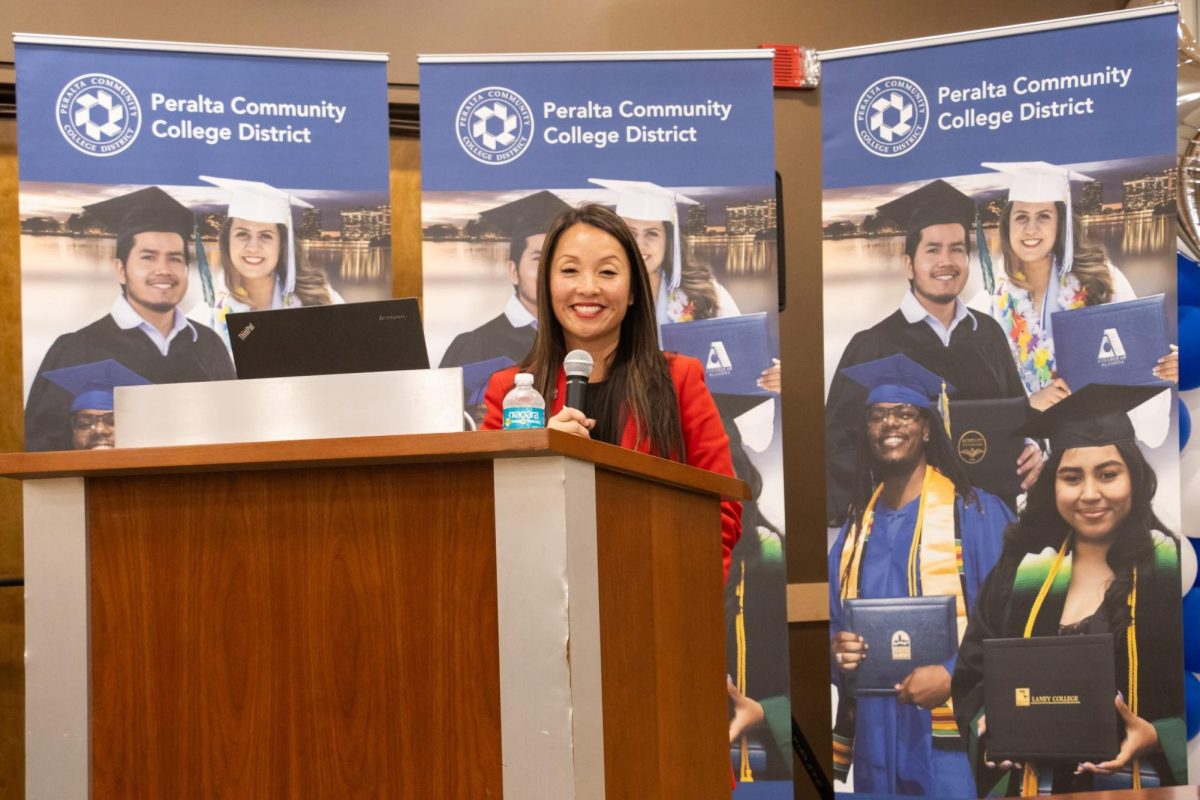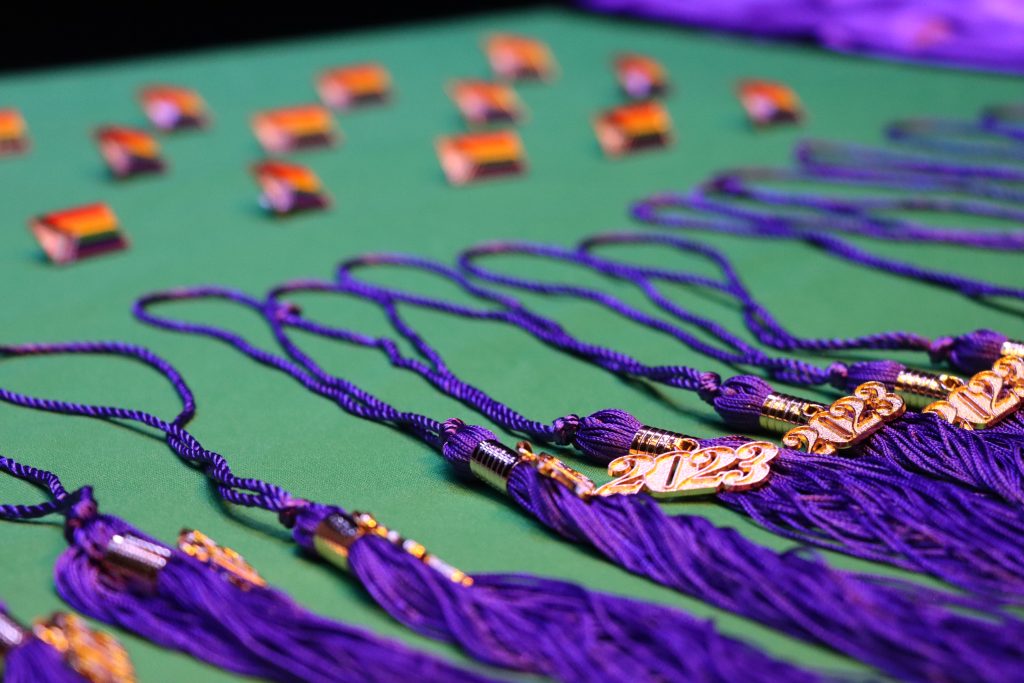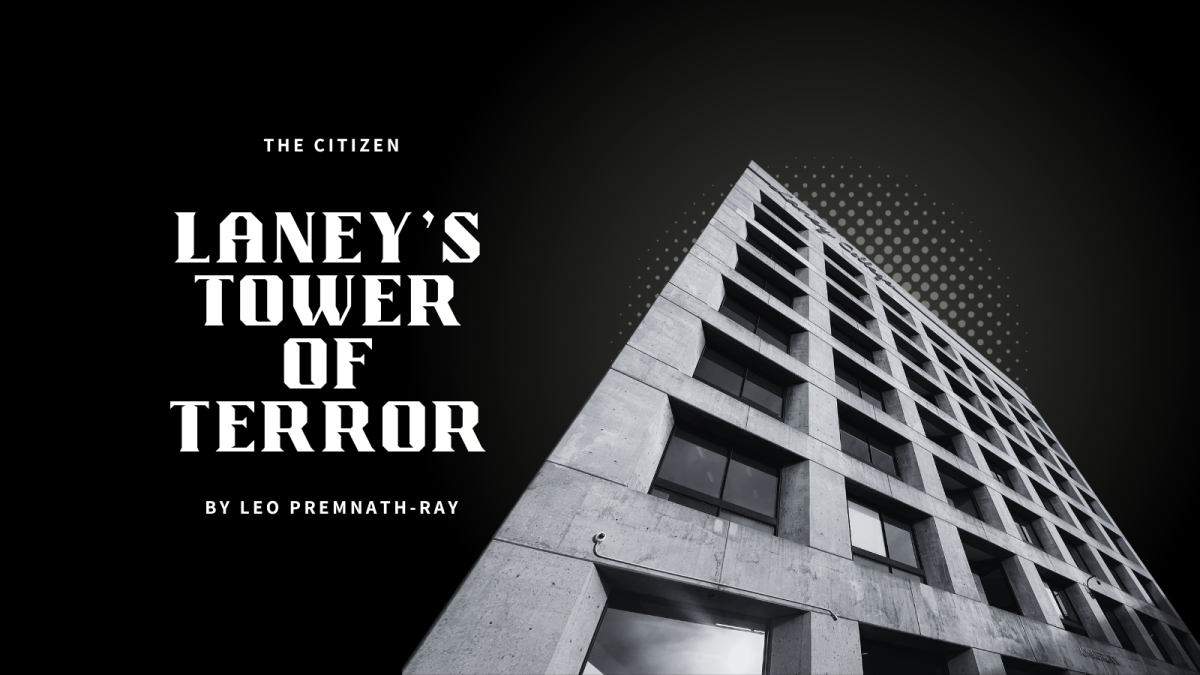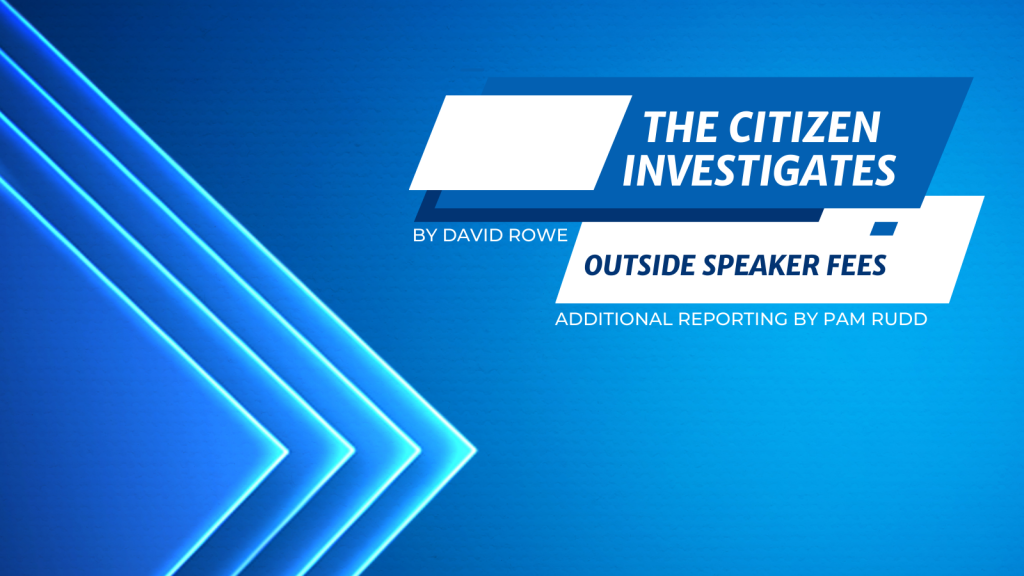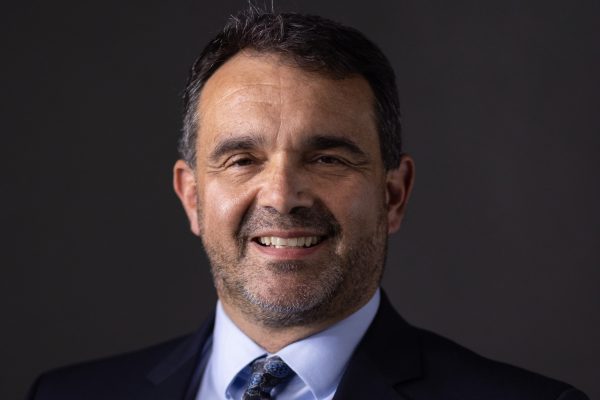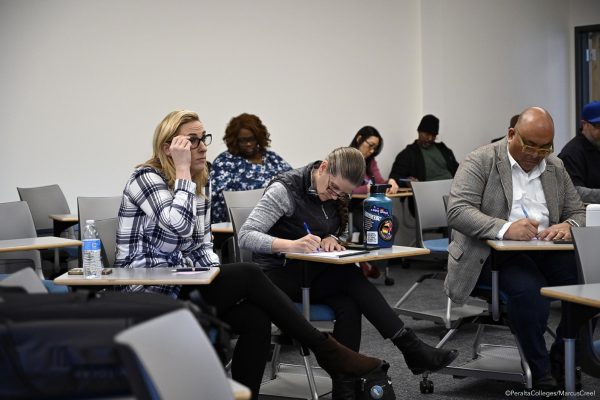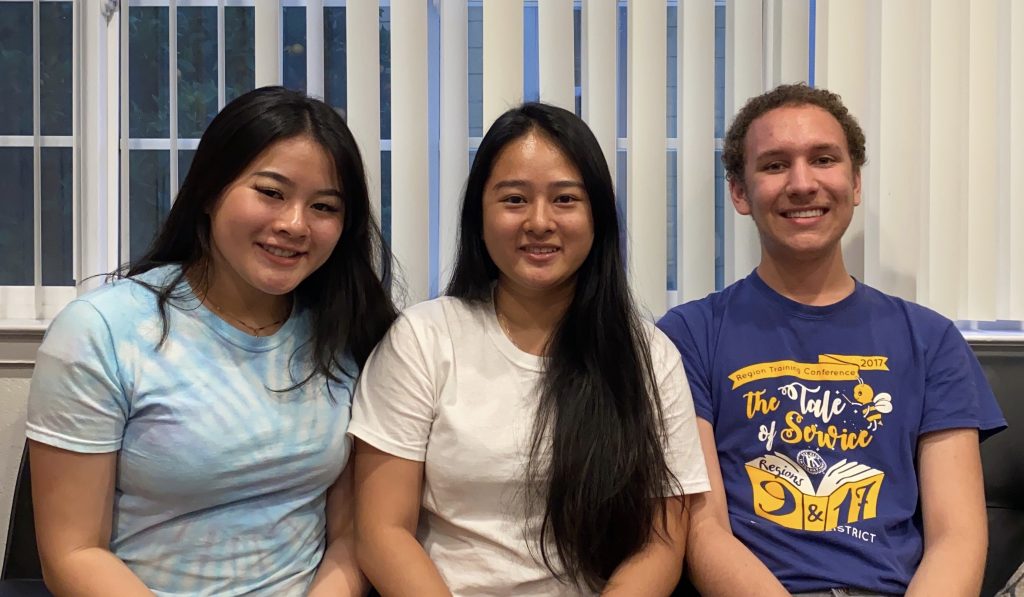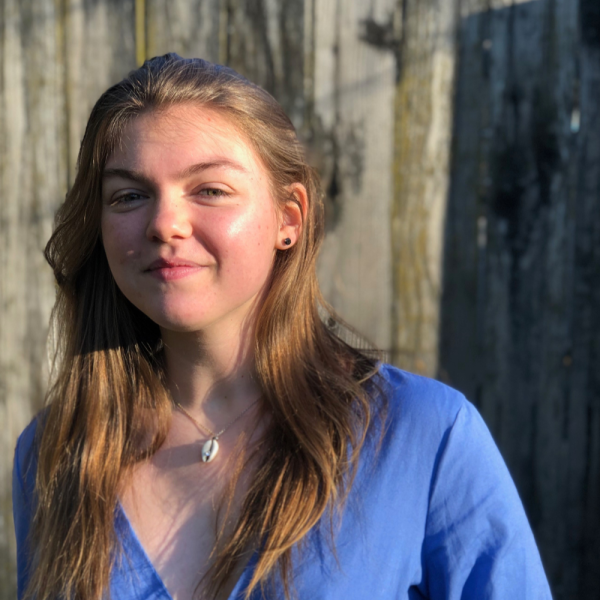Four days after screenshots of an email exchange between freshman Phuc Bui Diem Nguyen and Laney College Professor Matthew Hubbard went viral on social media — placing Laney in the global spotlight and prompting a slew of news coverage — Amiri Taylor told The Citizen that The New York Times failed to accurately tell his best friend Phuc’s story.
“In a way, they were censoring information,” Taylor said, upset that the New York Times did not publish photos of Hubbard’s emails and heavily focused on his single-sentence Twitter apology.
“People are going to think different things because they’re not seeing the full story. They’re not gonna see how horrific the comments he made were because they chose not to include that.”
By now, Phuc’s experience has been told dozens of times. Some of those reports included the disturbing content of Hubbard’s racist comments and others haven’t. Some elements of the story — including the investigation Hubbard will undergo, his history at Laney, and how his actions have impacted the Peralta community — have received less attention.
“My culture was not respected”
On the night of Wednesday, June 17, Phuc Bui Diem Nguyen, a Vietnamese American student, received an email from her trigonometry professor Matthew Hubbard asking her to anglicize her name.
“Phuc Bui sounds like an insult in English,” he wrote.
The email confused Phuc, because she was unfamiliar with the word “anglicize,” which means to conform to English standards or character. Phuc told KGO-TV that she went by the name “May” in high school but wants to use her given name in college.
Phuc said that learning the meaning of “anglicize” made her feel “really upset, because I didn’t know someone can say that to a student when they’re a professor,” she said during a phone call with The Citizen.
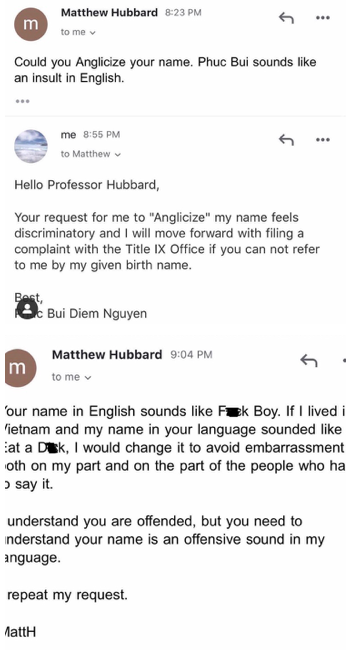
Phuc emailed Hubbard back within an hour, telling him that his request “feels discriminatory” and that she would file a complaint with the Title IX Office if he refused to use her given name.
Less than ten minutes later, Hubbard responded: “Your name in English sounds like F*ck Boy. If I lived in Vietnam and my name in your language sounded like Eat a D*ck, I would change it to avoid embarrassment both on my part and on the part of the people who have to say it. I understand you are offended, but you need to understand your name sounds offensive in my language.”
Phuc’s sister and friend published screenshots of the interaction on Twitter and Instagram, and Hubbard started to call Phuc by “P. Nguyen” during class. Hubbard told the New York Times that he started to do the same for all his students in Phuc’s class.
Phuc said she had never experienced pressure to anglicize her name before. Usually people ask how to say her name, which is pronounced “fook.” Hubbard did not ask. “I felt really disrespected,” Phuc said. “My culture was not respected.”
Phuc’s sister, Quynh Diem Bui Ngyuen, said she posted the emails on social media because she felt that Hubbard’s request was inappropriate. “Even though it might not be my name, it is my sister’s name, and I was very offended about that,” Quynh said.
The emails went viral. Thousands of comments sympathizing with Phuc and calling for Hubbard’s termination flooded the posts, and the story reached several prominent news outlets within 48 hours.
“I did not expect it to blow up. It was so surprising, because to me it seemed like this is something that many people would have gone through,” Phuc said.
Although most comments on the posts have been positive, some are discriminatory. People have said “that this must be like a joke, and go back to Vietnam and stuff. It’s not okay,” Quyhn said. But “most of them are very supportive.”
Phuc’s story has started a nationwide conversation about the pressure many students face to use an Americanized name.
“I felt very powerful that I was able to start the awareness,” Phuc said. People have reached out “saying how I make them feel like they should use their real name. It’s just very powerful.”
Hubbard apologizes
Hubbard, who has taught part-time at Laney for 15 years, told The New York Times that another student chose to anglicize their name shortly after the class started. Additionally, a different student in the class shared Phuc’s surname. Hubbard said he requested that Phuc anglicize partly to avoid confusion but also because he was uncomfortable with her name.
“The first email was a mistake, and I made it thinking about another student willing to Anglicize,” Hubbard told the New York Times. “But it’s a big difference with someone doing it voluntarily and asking someone to do it. The second email is very offensive, and if I had waited eight hours, I would’ve written something very different.”
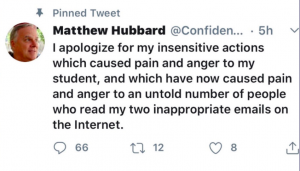
Hubbard has apologized on Twitter, in an email to Phuc, and during public comment at the June 23 Board of Trustees meeting.
“I apologize for my insensitive actions which caused pain and anger to my student, and which have now caused pain and anger to an untold number of people who read my two inappropriate emails on the Internet,” Hubbard wrote on his now-deleted Twitter account.
During public comment, Hubbard addressed Phuc in his apology and promised “not to be racist, but more than that, to be anti-racist.”
The Citizen reached out to Hubbard to ask how he plans to fight racism, but he declined to comment.
The community responds
Hours after screenshots of Hubbard’s emails were posted on social media, Laney College President Tammeil Gilkerson released a statement reassuring the Peralta community that Laney does not tolerate racism and announcing that Hubbard had been placed on administrative leave with an investigation underway. Hubbard was not identified in the statement.
“We want our students to feel safe and know that we honor their backgrounds, their experiences and everything that makes them unique,” Gilkerson wrote. “They are everything that is beautiful about our college.”
On Sunday, June 21, Board of Trustees President Julina Bonilla and Peralta Community College District Chancellor Regina Stanback Stroud released a statement — which also didn’t name Hubbard — condemning racist behavior.
“We understand the need to challenge and eliminate racism and white supremacy in all of its insidious forms, including the suppression of native cultures and languages and its demands that people of color conform to norms of ‘whiteness.’”
Tracy Camp, a professor in Laney’s math department, issued a statement of solidarity to her own students promising to fight for them should they encounter racism at school. “The fact that Phuc Bui Diem Nguyen has to navigate racism and xenophobia while taking a class in our department is just heartbreaking to me,” she wrote in an email to The Citizen.
The story has gained worldwide coverage, and most articles are accompanied by photographs of Laney’s campus. Hubbard’s two emails have offended thousands, and they might become many people’s only association with Laney College.
“I am frustrated that that individual’s action [has] put Laney College as the location where these comments were made, by one of our part time instructors,” wrote District Academic Senate President Donald Moore in an email to The Citizen. “My hope is that all the great work we do with students [is] known.”
The Associated Students of Laney College (ASLC) shared a statement with The Citizen denouncing racism but also celebrating the community’s response.
“The organizing done by community, students, and social media activism will forever mark Laney College and will continue to hold all accountable for deterring any foul negative comments or actions in present and future times within our educational spaces,” wrote student Senator Gelser Zavala on behalf of ASLC.
At the June 23 board of trustees meeting, community members expressed their disgust with the emails during public comment. Simultaneously, a petition claiming that Hubbard violated the board of trustees policy 3430 Prohibition Of Harassment launched, calling for Hubbard’s termination. As of June 30, the petition had 8,165 signatures.
Audio clips of speakers Danvy Le, Janelle Tilotson, and G. T. Reyes at the June 23, 2020 board of trustees meeting. (Because of a one minute public comment time limit, some speakers were cut off).
Hubbard’s history at Laney
Hubbard was fired in 2014 when Laney revoked his assignments for fall semester courses. At the time, the dean said that Hubbard and another faculty member were not the “best fit” for their positions. The union filed a grievance on both of the part-time professors’ behalf, claiming that the cancellations violated the union’s contract. Hubbard was rehired.
Peralta Federation of Teachers (PFT) President Jennifer Shanoski told The Citizen in an email that the district’s move to cut ties with Hubbard in 2014 was not related to student complaints. The “best fit” comment “was not qualified,” she said.
Investigation Underway
Peralta cannot immediately fire employees. No matter the accusation, the district has an obligation by law to “promptly and swiftly” investigate allegations involving discrimination and other types of complaints, according to Peralta’s Administrative Procedure 3435 (AP 3435). Students can file a discrimination complaint on Laney’s website.
Peralta is undergoing a misconduct investigation in the case of Matthew Hubbard. Beyond interviewing the student and the accused, the district will also speak with other potential witnesses or victims of similar misconduct.
“I felt very powerful that I was able to start the awareness,” Phuc said. People have reached out “saying how I make them feel like they should use their real name. It’s just very powerful.”
The district must notify the employee of the investigation at least seven days before their formal interview. At the interview, the PFT is required to provide a “duty of fair representation” to accused faculty should the employee request it, according to the employee’s Weingarten rights. The PFT is also required to support the faculty member if their rights are violated.
“These two legal requirements will dictate how the union must proceed in representation matters (if we are asked to represent the member),” Shanoski wrote in an email to The Citizen.
“This is what is often confusing for people and makes unions seem ‘bad.’ We are required by law to represent faculty in any matter that might result in disciplinary action if they request it. And we are required to provide that representation to the best of our ability.”
Shanoski clarified that “the union does not, in any way, support racist or xenophobic statements by anyone to anyone.” Even so, it is the union’s legal obligation to represent faculty members accused of discrimination — or any other form of misconduct — if asked to.
Investigations are meant to be completed within 90 days. Hubbard has been placed on paid administrative leave, which directs him “not to attend work or perform work duties.” The PFT’s Collective Bargaining Agreement specifies that placement on paid administrative leave is a non-disciplinary action.
The district agrees to “keep the investigation confidential to the extent possible,” and to “fairly and objectively” investigate the accusation in a “timely fashion,” according to the AP 3435.
If the investigation concludes that discrimination occurred, corrective and/or disciplinary actions will be imposed. Corrective actions include counseling, a written warning, or a written reprimand. Disciplinary actions include suspension or dismissal. Disciplinary action will be “prompt, effective, and commensurate with the severity of the offense,” according to AP 3435.
The district might also offer remedial action to the student, which may include providing counseling services or arranging for the student to retake or withdraw from the course without penalty. The district will also “take reasonable steps to protect the complainant from further harassment, or discrimination,” according to AP 3435.
Documentation of the investigation will be retained in the employees file for “a period of at least three years,” according to the AP 3435.
Committing to Change
In wake of global backlash, the Peralta community has been proactive about mending damage and condemning racism.
As a call to action, a group of Laney faculty are working on a campaign called the #PeraltaIdentityPledge. Their goal is to encourage faculty, classified, and administrators to commit to learn and call everyone by their self-specified name and pronouns.
The pledge was written by faculty members Steven Zetlan, Beth Wadell, and Eleni Gastis. Eleni Gastis is chair of the journalism department and faculty advisor of The Citizen. Several other faculty offered feedback as well.
“It is my hope that all Peralta teachers will see how recognizing and honoring students’ given and chosen names promotes community in the classroom, models respect for each student’s multiple identities, and also helps reduce white supremacist ideas such as the preference for Anglo names as well as reducing systemic and institutional racism,” wrote Zetlan in an email to The Citizen.
Zetlan said he hopes that the pledge is the beginning of a series of efforts. In the future, those efforts might include “professional development workshops on names and the tools teachers can use to learn about their students names and related identities,” and “adjustments to Prompt / Passport and Canvas that make it easier for students to correct their names without the red tape that engenders institutional racism,” Zetlan said.
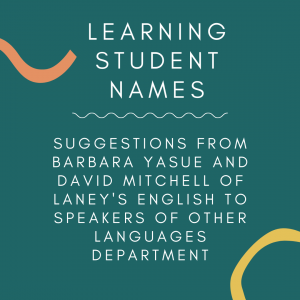
– “Students have a right to be called whatever name they choose. They may want to be called a particular name because they are proud of their birth name, transgender or non-binary, divorced or simply don’t identify with the name they are given at birth. Furthermore, no matter what their background is, they have just as much right to use that name as anyone else. We can no longer assume that an English sounding name is the standard.”
– “Make use of resources: On the internet there are plenty of resources on how to pronounce names. Simply google, How to pronounce….” and you are likely to hear the name you are looking for. You can also use Name Coach” embedded in Canvas. Students may appreciate your efforts, but it’s really not up to them to keep coaching you. If they seem resistant, do your best with the other resources.”
Danvy Le, a professor from California State University, East Bay, appeared at the June 23 board of trustees meeting and implored the board to consider “ongoing diversity training as a requirement for all instructors,” as a preventive measure of similar misconduct.
Camp, Hubbard’s colleague in Laney’s math department, voiced similar ideas to The Citizen. “It is clear to me that we need to be more proactive about getting ourselves training in anti-racism and anti-bigotry so that we do better.”
Barbara Yasue and David Mitchell of the English for Speakers of Other Languages department provided The Citizen with suggestions for professors who encounter unfamiliar names (at right).
Camp said that she makes an effort to “emphasize to the people taking my class that I adore Laney precisely because of our diversity.” Camp said that she regards her students as she would her own children. “Whenever I’m interacting with a student, I think about that idea and I honestly feel love for the person with whom I am interacting,” she said. “I think people feel that and acting out of love changes the way I teach.”
Nearly 85% of Laney students identify as non-White, and over 30% are Asian or Pacific Islander. The statements released by the college, district, union, and the associated student body all condemn racism, but each also embrace Laney’s diversity. Laney’s mission statement promises to educate, support, and inspire “students to excel in an inclusive and diverse learning environment rooted in social justice.” According to Laney’s website, welcoming diversity is a core value at Laney. The community is working hard to amplify that goal in the wake of Hubbard’s comments.
“While our mission has been bold and unrelenting, we also recognize that our college and its community is a reflection of broader society and we must actively fight ignorance with education,” Gilkerson wrote in her statement. “Our work continues.”

